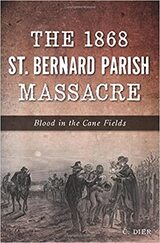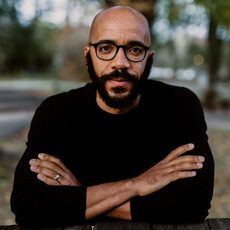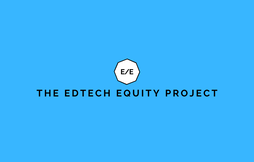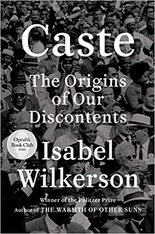|
In the summer of 2020, Family Engagement Lab expressed a commitment to ongoing investigation of how racism inhibits equitable family engagement and to developing anti-racist family engagement strategies. Part of our commitment included regular team conversations about race, racism, and anti-racism. Team members led thought-provoking and transformative bi-weekly discussions. In this month’s blog post, we share more about our sessions including staff reflections from the 24 sessions held over the past year. We invite you to read these, reflect on your own journey around race, racism and anti-racism and learn more from the resource links included below. Below I share a summary of my impactful moment from a team conversation last year.  Hailey Kuhn, Head of Partnerships The session where we welcomed guest speaker Chris Dier about his book, “The 1868 St. Bernard Parish Massacre: Blood in the Cane Fields,” was particularly moving for me. The ensuing conversation was what made the greatest impression on me. To hear directly from our team about historical trauma was very powerful. It made me realize how much I didn't know about the personal journeys of my colleagues and how historical trauma may impact them. Listening to their stories, I could start to feel how trauma transcends a moment in time and is layered through time, having a lasting and rippling effect. Vidya Sundaram, co-founder and CEO Board Director Icela Pelayo led a session for our staff and development partner called “What’s in a Name?” about the range of culturally responsive pedagogies and how they relate to our work at Family Engagement Lab. It’s powerful to see such a broad range of academic research that recognizes families, cultural and linguistics contexts, and home environments as assets to student learning. The evidence, strategies and tools exist to support kids through school-family partnership, we just need the collective will to implement them.  Ryana S. Barbosa, Sr. Project Manager The session that sticks out for me is one that Megan facilitated on Nov 5th which was a review of a recorded interview with Clint Smith on his book "How the Word is Passed" and then followed by a team discussion. The session was extra memorable because of Megan's personal connection to Clint (they had done TFA together I think) but I found the topics of his interview + our team discussion really enlightening in terms of our necessity to rethink the way history has been taught in this country and the narratives that have been repeated until they seem to become truth (a focus specifically on the founding fathers and the anecdote on the present-day visit to Monticello sticks out). With the evolving discussions on critical race theory and the ongoing controversy over what gets taught in classrooms and how, this conversation really uplifted for me the divisions and biases that are being seeded in children and families and educators and how confronting those biases starts with learning the fuller picture of history and creating spaces for conversations that are rooted in curiosity and empathy. It's important in our work at FEL to stay curious and empathetic as we craft content and help build the capacity of educators to more deeply and authentically engage with families, especially when there are cultural differences.  Megan Lorio, Managing Editor In thinking back on our many discussions, something that emerges is that we have been able to use our time together for both an exploration of identity and an opportunity to use frameworks/tools that support making our work more equitable. For instance, we had a session that unpacked a tool from the Edtech Equity Project, in which we were able to think about our design process in the context of designing services/products that are centered on racial equity. The work we've done together has not only built my knowledge of history but also continues to shape how we think about our work going forward.  Hannah Jong Lee, Sr. Project Manager I really appreciated the book club discussions when we read “Caste” by Isabel Wilkerson as a team. The book itself was eye opening in terms of learning more about racial injustice in America and was timely for me personally, as Asian-targeted hate crimes were on the rise. The discussion questions also unveiled personal stories and narratives from our team members that brought us to a place of vulnerability and deeper appreciation for each other that we hadn’t quite tapped into before. Elisabeth O'Bryon, co-founder and Chief Impact Officer So many of our bi-weekly sessions on race, racism, and anti-racism have impacted me profoundly. I cannot identify a single session because what impacted me most greatly throughout has been the insights and perspectives shared so openly and thoughtfully by my colleagues. During each session, I felt my perspective shift and widen as I listened to my colleague's reactions, reflections, and insights. Not only have the sessions and discussions prompted important self-reflection, but they have also left me with a sense of deeper connection and gratitude for my colleagues. Marcos Escalona, Sr. Product Manager
Ry's December 17th session on Brown vs Board of Education was impactful to me. I had studied the case a bit in High School, but had never considered how one effect of that ruling would be effectively greater segregation in the teaching force. One stat I noted from the session: 35-50% of teachers were black in 17 segregated school states prior to desegregation. I left that session thinking deeply about how/whether it is possible to anticipate and avoid downstream effects of this nature when shaping and implementing policy. Comments are closed.
|
Categories
All
Archives
July 2024
|
|
DONATE
PayPal |
548 Market Street #42210 San Francisco, CA 94104
© 2023, Family Engagement Lab | Privacy Policy | Terms of Use
© 2023, Family Engagement Lab | Privacy Policy | Terms of Use
